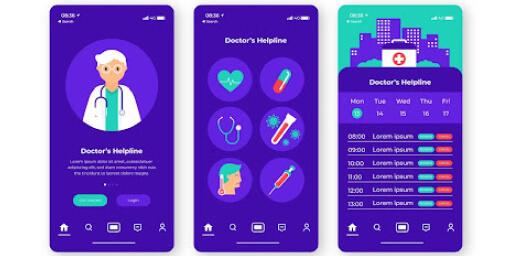In an era where our smartphones have become personal trainers, nutritionists, and wellness coaches, the rise of health apps has revolutionized the way we approach personal well-being. With a few taps, these digital companions promise to track, analyze, and optimize every heartbeat, calorie, and step. Yet, as we immerse ourselves in this data-driven utopia, a question looms large: are these apps too focused on numbers to foster genuine, sustainable change? As users find themselves navigating a sea of charts and metrics, the balance between quantifiable health improvements and holistic well-being is increasingly called into question. This article delves into the heart of this digital conundrum, exploring whether the relentless pursuit of data may be overshadowing the nuanced journey to lasting health.
Balancing Precision and Personalization in Health Apps
In the rapidly evolving world of health technology, striking a balance between precision and personalization is essential for creating apps that not only provide accurate data but also resonate on a human level. While many health apps boast sophisticated algorithms and data analytics, they often fall short in addressing the nuanced needs of individual users. A focus solely on data can lead to experiences that feel mechanical and disconnected from the user’s personal health journey. To bridge this gap, app developers are exploring ways to integrate user-centric features that prioritize empathy and understanding.
- User-Centric Design: Incorporating feedback loops where users can share their experiences and preferences.
- Adaptive Algorithms: Developing systems that learn from user behavior and adapt recommendations accordingly.
- Holistic Health Metrics: Moving beyond numbers to include qualitative insights, like mood tracking and lifestyle habits.
By blending data precision with a personalized touch, health apps can foster more sustainable behavioral changes. This approach not only enhances user engagement but also supports long-term health goals by creating a more relatable and supportive digital environment.
Understanding the Impact of Data Overload on User Engagement
In today’s digital age, health apps have emerged as powerful tools for tracking wellness metrics. However, the sheer volume of data these apps provide can be overwhelming for users, potentially hindering long-term engagement. The relentless influx of statistics—steps counted, calories burned, sleep patterns analyzed—can lead to what is commonly referred to as data overload. This saturation of information often leaves users feeling more stressed than motivated, as they struggle to make sense of the numbers without clear guidance on actionable steps.
To combat this challenge, app developers need to shift their focus from quantity to quality. Key strategies include:
- Simplifying data presentation: Presenting data in a visually intuitive manner can help users quickly understand their progress without feeling inundated.
- Personalizing insights: Tailoring recommendations based on user behavior can foster a sense of relevance and personal connection.
- Encouraging mindful interaction: Promoting features that encourage users to engage with the app in a balanced way can prevent burnout and sustain interest.
By addressing data overload, health apps can transform from mere repositories of information into catalysts for meaningful, sustainable lifestyle changes.

Fostering Sustainable Habits Beyond the Digital Interface
In the quest for a healthier lifestyle, health apps have emerged as powerful allies, leveraging data to inform and guide users. However, the digital interface often emphasizes numbers over nurturing sustainable habits. To foster long-lasting change, it’s crucial to move beyond mere data collection and analysis. Holistic well-being involves integrating technology with real-world actions that resonate with individual lifestyles and personal values.
Consider adopting strategies that focus on the human experience:
- Mindful Engagement: Encourage users to reflect on their emotional and mental states, not just physical metrics.
- Community Building: Foster connections among users through forums or group challenges that promote accountability and shared experiences.
- Adaptive Goals: Shift from rigid targets to adaptable objectives that evolve with the user’s journey, accommodating life’s unpredictabilities.
By enhancing the human connection and emphasizing personalized growth, health apps can transcend the limitations of data-driven approaches and inspire truly sustainable habits.

Designing Health Apps with Empathy and User-Centric Approaches
In the ever-evolving landscape of health technology, the integration of empathy and a user-centric mindset is paramount. Health apps often prioritize data collection and analysis, but without understanding the human element, they risk alienating users who seek meaningful engagement. Empathy-driven design requires developers to delve into the emotional and psychological needs of users, crafting experiences that resonate on a personal level.
To achieve this, developers can focus on several key aspects:
- Personalization: Tailoring content and recommendations to individual preferences and behaviors can enhance user engagement and satisfaction.
- Intuitive Interfaces: Simplifying navigation and ensuring accessibility can make apps more inclusive and user-friendly.
- Feedback Mechanisms: Incorporating channels for user feedback encourages continuous improvement and fosters a sense of community.
By shifting from a purely data-driven approach to one that prioritizes empathy, health apps can support sustainable behavioral changes and improve overall well-being.

